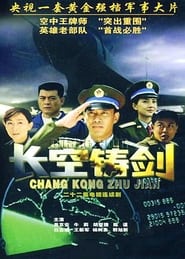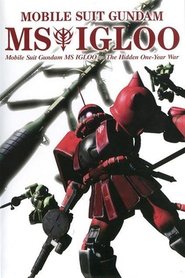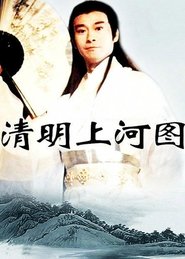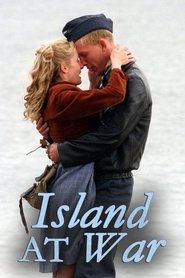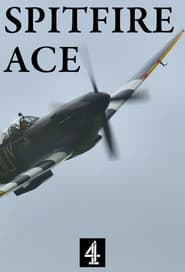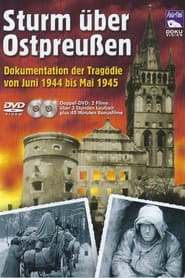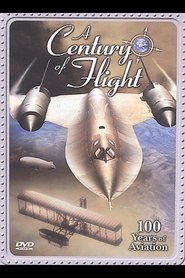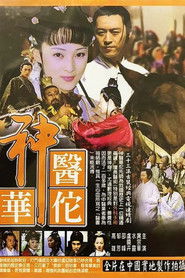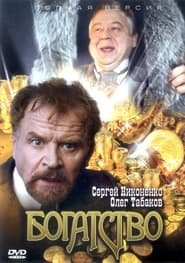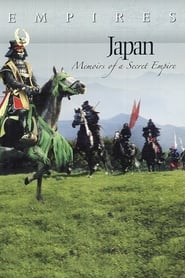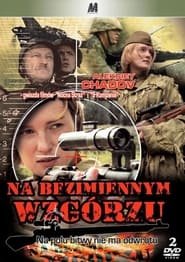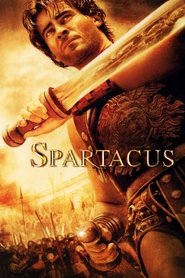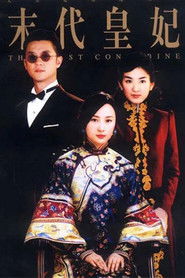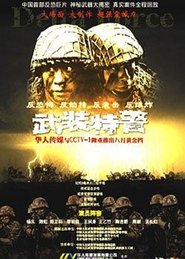New War Politics TV Series on Pantaflix - Page 99
-
长空铸剑
2004
长空铸剑
2004
-
Mobile Suit Gundam MS IGLOO
2004
star 6.5The year is Universal Century 0079. Oliver May is a technical officer in the Zeon 603rd Technical Evaluation Unit , in charge of testing new military technology. Stationed in the Jotunheim, a civilian transport ship that was converted into military use, Oliver must head into battle and experience the One Year War, only this time from the perspective of a weapon tester who struggles to make an impact on an evolving war during changing times. -
清明上河图
2004
清明上河图
2004
-
Island at War
2004
Island at War
2004
star 7.7Island at War is a British television series that tells the story of the German Occupation of the Channel Islands. It primarily focuses on three local families: the upper class Dorrs, the middle class Mahys and the working class Jonases, and four German officers. The fictional island of St. Gregory serves as a stand-in for the real-life islands Jersey and Guernsey, and the story is compiled from the events on both islands. Produced by Granada Television in Manchester, Island at War had an estimated budget of £9,000,000 and was filmed on location in the Isle of Man from August 2003 to October 2003. When the series was shown in the UK, it appeared in six 70-minute episodes. -
Spitfire Ace
2004
-
Fafner
2004
Fafner
2004
star 6.3Tatsumiyajima is the central island in the middle of a small cluster of islands, in a sleepy backwater of the Japanese isles. Not much happens there, and the island's young people go to school knowing that their lives are likely to remain peaceful and undisturbed. Or so they have been taught...but the truth is different. The fate of mankind is on the line, and Tatsumiyajima is the last line of defense against a hostile and incomprehensible enemy. At the center of it all, fighting for Humanity's continued existence, is the giant robot Fafner, the dragon that guards this final treasure of mankind. -
A Century of Flight: 100 Years of Aviation
2004
From the Wright brothers to the Right Stuff, this is the complete story of manned flight. Learn through rare images and lost interviews with the pioneers of aviation, 100 years of aviation history. -
Keris Empu Gandring
2004
-
Lutung Kasarung
2004
-
神医华佗
2004
神医华佗
2004
-
Богатство
2004
-
Japan: Memoirs of a Secret Empire
2004
star 9.5Commanding shoguns and samurai warriors, exotic geisha and exquisite artisans—all were part of the Japanese “renaissance”; a period between the 16th and 19th Centuries when Japan went from chaos and violence to a land of ritual refinement and peace. But stability came at a price: for nearly 250 years, Japan was a land closed to the Western world, ruled by the Shogun under his absolute power and control. Japan: Memoirs of a Secret Empire brings to life the unknown story of a mysterious empire, its relationship with the West, and the forging of a nation that would emerge as one of the most important countries in the world. -
Imperium: Nero
2004
Imperium: Nero
2004
star 6.3As a young boy, future emperor Nero witnesses the mad Emperor Caligula kill his father and exile his mother. While in exile in the pontine islands, Agrippina, his mother, sees a vision telling her that her son can become emperor, but she will have to die first. She accepts the proposal. Back in Rome, Nero, now being raised by emperor Claudius after Caligula's death, Agrippina returns. She poisons Claudius' food and Nero becomes emperor. At first, Nero cuts taxes and introduces successful programs and invades Brittania. Soon he meets a beautiful slave named Claudia Acte, and marries her, throwing off his engagement with Claudius' daughter, Claudia Octavia, telling her she can marry someone she will be happy with. Heartbroken, she arrives at an island and kills herself. Nero enjoys being married to Claudia Acte, but soon he gradually goes mad with power and sets fire to Rome. -
Jurus Halilintar
2004
-
On the Nameless Height
2004
star 2.5The location is the Belarusian forests, close to the Polish border, during Operation Bagration in the summer of 1944. The Red Army is preparing to advance, but on one segment of the front there are two serious obstacles: an unnamed hill, and a highly skilled German sniper. The local commander, Major Inozemtsev, suspects that the hill is a trap. -
Spartacus
2004
Spartacus
2004
star 7Spartacus, who was enslaved by the Romans after they murdered his father, leads fellow slaves in an attempt to overthrow the repressive Roman Empire. -
末代皇妃
2004
末代皇妃
2004
-
武装特警
2004
武装特警
2004
-
Great Yamato No. Zero
2004
star 7This story starts in the year 3199, when a mighty enemy attacks the Milky Way from a neighboring galaxy. The enemy engages the combined forces of the Milky Way, an Alliance of many stellar nations, and defeats them one after another. The remaining Milky Way Alliance forces are reduced to just six fleets. After the Alliance headquarters is destroyed, and when the collapse of the central Milky Way Alliance is imminent, the Great Yamato Zero surprises everyone and embarks on a mission to assist the Milky Way Alliance in one last great battle.
 Netflix
Netflix
 Amazon Prime Video
Amazon Prime Video
 Apple iTunes
Apple iTunes
 Apple TV Plus
Apple TV Plus
 Disney Plus
Disney Plus
 Google Play Movies
Google Play Movies
 Paramount Plus
Paramount Plus
 Hulu
Hulu
 HBO Max
HBO Max
 YouTube
YouTube
 fuboTV
fuboTV
 Peacock
Peacock
 Peacock Premium
Peacock Premium
 Amazon Video
Amazon Video
 The Roku Channel
The Roku Channel
 AMC+
AMC+
 Kocowa
Kocowa
 Hoopla
Hoopla
 The CW
The CW
 Vudu
Vudu
 Starz
Starz
 Showtime
Showtime
 PBS
PBS
 Pantaflix
Pantaflix
 FXNow
FXNow
 Tubi TV
Tubi TV
 Kanopy
Kanopy
 Comedy Central
Comedy Central
 Crunchyroll
Crunchyroll
 Microsoft Store
Microsoft Store
 Redbox
Redbox
 Sun Nxt
Sun Nxt
 ABC
ABC
 DIRECTV
DIRECTV
 Crackle
Crackle
 Fandor
Fandor
 Plex
Plex
